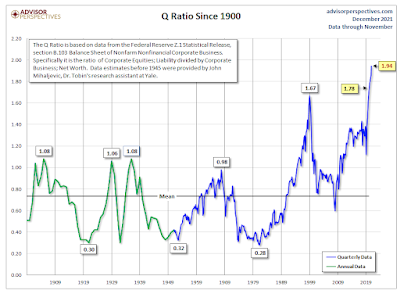I have read many things written by Ray Dalio and his thought process simply never fails to amaze me. He has published a new book which I have not read but cannot wait to. He continues to think and write despite his age (72 and going strong). The following is something he wrote recently when commenting about the Russia-Ukraine conflict.
Having power is good because power will win over arguments, rules and laws all the time. When push comes to shove, those who have the power will either enforce their interpretation of the rules and laws or overturn them to get what they want. It is important to respect power because it is not smart to fight a war that will produce more pain than reward: it is preferable to negotiate the best settlement possible (that is unless one wants to be a martyr, which is usually for stupid ego reasons rather than for sensible strategic reasons). It is also important to use power wisely. Using power wisely does not mean forcing others to give you what you want ie bullying them. It is the recognition that generosity and compromise are powerful forces for producing win-win relationships, which are fabulously more rewarding that lose-lose relationships. In other words, it is often the case that using "hard power" is not ideal and that using "soft power" is preferable.
This paragraph is so powerful that I felt compelled to write it down here so that it will be part of my infosite and I hope to be able to practice what is written here as well as to be aware who in my circle is using hard power for stupid ego reasons.
We have all seen bosses enforcing their interpretation of the rules and we have all seen colleagues using power for stupid ego reasons. Most often, we are powerless to stop them at that moment. But we should learn from their mistakes and perhaps make records to note them down such that one day, we might be able to turn the tables against them.
For example:
1. Discretely deciding to use company's budget for meals by using power over secretaries to setup the meal with counterparty and colleagues, bypassing higher authorities.
2. Forcing the deal team to kill the deal by re-interpreting the criteria for new investment ideas which fit a pre-created framework. The deal would have passed the criteria but the re-interpretation meant that it now could not.
3. Using power to decide the fate of interns despite the verdict still being processed by the rest of the team and feeling happy about "playing god" over interns.
Yes, power abuses.
Back to Ray Dalio, I think the quote above list out all the important tenets about how we should use power. People who play with power are up to no good. They are political, egoistic and generally do not add value. So be careful with people who abuses power and also the companies that have these people.
Here's a few likeable timeless quotes about power:
Experience have shown that even under the best forms of government, those entrusted with power have, in time, and by slow operations, perverted it into tyranny - Thomas Jefferson
With power comes the abuse of power. And where there are bosses, there are crazy bosses. It's nothing new. - Judd Rose
Those who have true power share it, while those who hunger power abuse it - Royalton Ambrose


